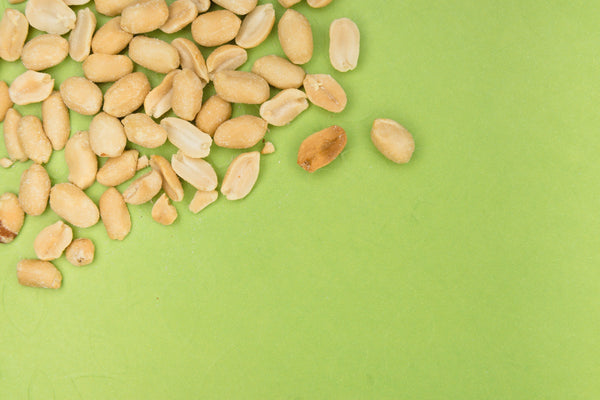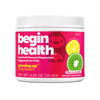Magnesium L-Threonate for Kids: Benefits, Safety, and Alternatives
share this article
 If you've never heard of magnesium L-threonate, you're not alone. Many people have only heard of magnesium, but magnesium itself comes in many forms that have different effects in the body. This specific form of magnesium gained attention among adults for its potential brain benefits, including sharper focus and better memory. Parents now wonder if it could help their kiddos, too, especially when it comes to issues like attention, getting good rest, and staying calm.
If you've never heard of magnesium L-threonate, you're not alone. Many people have only heard of magnesium, but magnesium itself comes in many forms that have different effects in the body. This specific form of magnesium gained attention among adults for its potential brain benefits, including sharper focus and better memory. Parents now wonder if it could help their kiddos, too, especially when it comes to issues like attention, getting good rest, and staying calm.
Here's a breakdown about what magnesium L-threonate actually does for your kid's health, how it compares to other forms like magnesium glycinate, oxide, or citrate, and what it may mean for sleep quality, cognitive function, and focus.
What Is Magnesium L-Threonate?
Magnesium plays a crucial role in the body by supporting muscles, nerves, bones, and even digestive health. It also helps support the immune system and your kids' digestive health. According to the U.S. National Institutes of Health, the recommended magnesium L-threonate dosage for kids between the ages of 4 and 8 should be around 130 mg of magnesium a day, with older kids needing even more.
Magnesium L-threonate stands out because it can bind with L-threonic acid, a compound that allows it to cross the blood-brain barrier. This unique feature sparked research into its potential effects on brain health, memory, and attention. While most studies have focused on adults, the growing interest from parents stems from its promise in areas such as focus, learning, and cognitive function.
Is Magnesium L-Threonate Safe for Kids?
Parents often ask if magnesium L-threonate is safe for kids. Right now, the short answer is we don't fully know yet. There is a lack of pediatric-specific research, and the differences between adult and kids' needs mean there are still questions about dosing and long-term safety or efficacy in kids.
Keep in mind the potential risks and considerations of using magnesium L-threonate as a kid's supplement. For example, the magnesium L-threonate dosage for kids is available on the NIH (ranging between 30 mg and 360 mg from birth to age 18), but there are still limited studies. And, some studies have shown that taking too much magnesium can lead to headaches, digestive upset, or cause interactions with medication.
Another factor parents consider is practicality. Magnesium L-threonate tends to cost more than other forms and may not be easy to find on store shelves. For these reasons, most pediatricians recommend starting with forms of magnesium that have stronger evidence in kids before exploring specialty options.
Potential Benefits of Magnesium for Kids
There are potential benefits of taking magnesium, particularly when it comes to muscle relaxation, bone health, sleep, calmness, and keeping the gastrointestinal tract moving. Some of them that you'll want to consider include:
- Muscle relaxation and bone health
- Better sleep and calmness
- Healthy digestion and regularity
As for magnesium L-threonate for kids, the primary interest is in its potential benefits for brain health. Magnesium has also been linked to calming the nervous system. Low magnesium levels were linked to irritability and poor sleep, both things that keep kids (and their parents) up at night.
Some parents ask if magnesium L-threonate is good for ADHD. While there are encouraging study results for adults, pediatric studies are still lacking. Preclinical work has shown L-Threonic Acid Magnesium Salt, or LTAMS, exhibits both neurobiological and neurofunctional effects that could offer clinical benefits for ADHD treatment.
Magnesium can also help with stress, emotional issues and anxiety, and focus support. Another benefit to your child is magnesium's role in healthy digestion. The caveat is that there have been few pediatric studies to demonstrate exactly how magnesium benefits their health, and that's something you have to keep in mind as you consider potential benefits or downsides.
How Magnesium L-Threonate Compares to Other Forms
| Magnesium L-Threonate | Magnesium Citrate | Magnesium Oxide | Magnesium Glycinate | |
| Bioavailability | Crosses the blood-brain barrier and studied for cognitive function in adults. | Well-absorbed form, less likely to target the brain. | Lower absorption levels, not as good at raising low magnesium levels. | High absorption. |
| Digestive Support | Not typically used for digestive support. | Has a gentle laxative effect, which can support digestive health. | May cause loose stool or stomach cramping with high doses. | Gentler on the gastrointestinal tract. |
| Calming Effects | May have benefits for brain health. | Mild calming benefits, can help regulate sleep. | Few calming effects. | Improved sleep quality and calming effects. |
| Researched in Pediatrics? | Limited pediatric research. | More often used for children than other forms. | Little pediatric data. | Some evidence supports magnesium glycinate for kids compared to magnesium oxide or L-threonate. |
| Recommended For: | Potential uses to enhance memory, support ADHD treatment. | Kids who sometimes need digestion support or help with constipation. | Short-term use, primarily as a low-cost supplement. | Supporting emotional and behavioral health, improving sleep, and supplementing magnesium in the body. |
What Parents Should Consider Before Supplementing
First, know when your kid is showing signs of low magnesium, such as having nights of poor sleep, more regular irritability, or constipation.
After that, consider:
- The role of your kid's diet: It's possible to start with food first, allowing your kiddo to get magnesium from natural food sources first. If that doesn't give them enough, you might want to consider a supplement.
- Safety: All kids need different dosages of magnesium based on their age, and it's important to talk to a pediatrician before you start any supplementation. 130 mg/day is suitable for kids between 4 and 8 years old, but those between 9 and 13 need around 240 mg a day.
- Unique health needs: Magnesium has been studied in ADHD, and although there are few pediatric studies, it may be beneficial for ADHD treatment.
Finally, magnesium can interfere with the absorption of certain medications, including some antibiotics. Always talk to your kid's pediatrician before starting any supplementation to avoid trouble.
Alternatives and Food Sources of Magnesium
One of the best ways to get magnesium is through magnesium-rich foods. These foods could include:
- Leafy greens
- Nuts
- Beans
- Whole grains
The National Institutes of Health recommends getting magnesium through foods and beverages in which it's naturally present. In food form, magnesium doesn't need to be restricted. Healthy kidneys will naturally filter and remove any excess.
It's also possible to get magnesium through supplementation, but it's crucial to be mindful of dosages. There are both lower and upper limits recommended for kids and adults. Exceeding them can lead to uncomfortable side effects (some can even be dangerous). Keep in mind that magnesium citrate and glycinate have been better studied in pediatrics than other forms. If you start your kid on a supplement, consider Begin Health's Growing Up Magnesium, which supports electrolyte balance and gentle digestion in kids.
Key Takeaways for Parents
Overall, magnesium in kids is a fascinating subject that's still under the proverbial microscope. Magnesium is an essential nutrient, and the variant magnesium L-threonate shows real promise. Unfortunately, it hasn't been well-studied in pediatrics, which means parents may want to consider safer alternatives that already exist (and have proven benefits). As always, it's vital to check with your kiddo's pediatrician before you start any supplement.
Begin Health understands the importance of vitamins and minerals to support gut balance from an early age. Growing Up™ Magnesium is a dual-magnesium drink for kids made with kiwi powder and prebiotic fiber from agave inulin that supports gentle digestion and electrolyte balance. Flavored like Pinkfruit Lemonade, this could be your picky eater's new favorite drink.

















